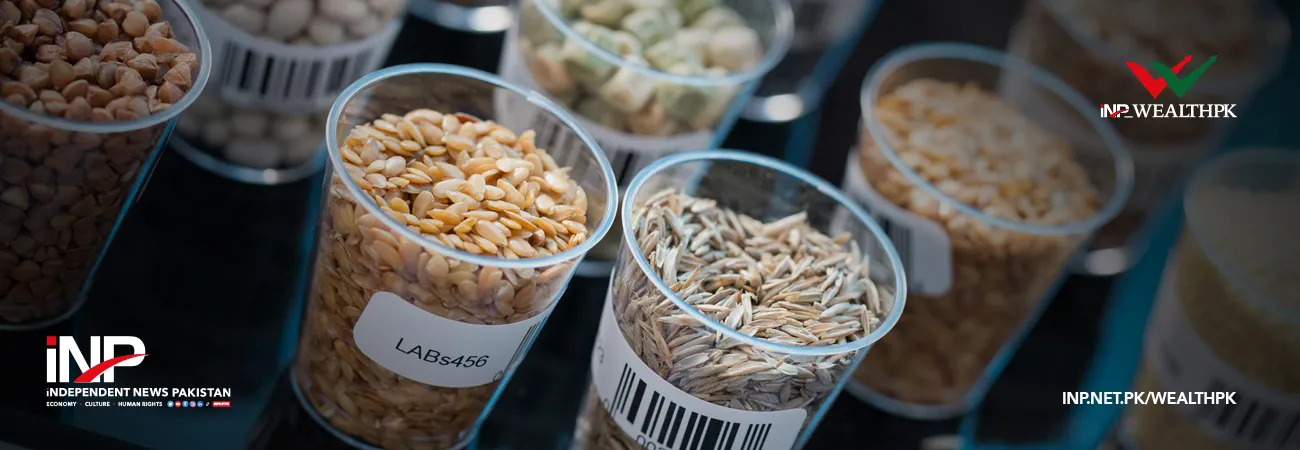INP-WealthPk
Naveed Ahmed
Soil Moisture Sensor (SMS) has come as a tool for farmers to increase production and conserve water without having to spend much on irrigation and buying fertilizer, reports WealthPK.
Dr. Bashir, Director of Climate Energy & Water Research Institute (CEWRI), told WealthPK that lack of awareness about the efficient use of water and fertilizer in cropping fields for a country already riddled with a significant water crisis was a very urgent issue to address.
“SMS helps boost crop production by optimizing irrigation schedules. Water is essential for plant growth. As a result, irrigation takes careful consideration, as it should be neither excessive nor insufficient.
Too much water will suffocate the roots and wash away critical nutrients. Excess water application [to crops] also increases the risk of seepage into the groundwater, leading to plant health issues. Conversely, using less water than necessary will leave the crop in a growth strain or leave the plants thirsty,” Bashir added.
Soban Hameed, Project Manager of Centre for Water Informatics & Technology (WIT), Lahore University of Management Sciences (LUMS), told WealthPK that to combat water and fertilizer application shortcomings in the agriculture sector of Pakistan, WIT had introduced Soil Moisture Sensors to transform the current agrarian culture into an advanced field.
SMS automatically generates warnings that indicate when to irrigate and when not to irrigate, allowing you to conserve water and increase crop yields. The sensors allow for cultivation of a crop within a band of optimal water content at the root zone of the plant, thereby increasing crop production. These sensors also have a long battery life, which allows them to operate without human intervention for a year.
Sugarcane growers that utilized these installed soil moisture monitors saved up to 35% on irrigation expenditures while improving crop output quality, Hameed said. These sensors may save 40% of the total irrigation water without SMS, he asserted.
Most sensors can cover an area of 5 acres, while others can cover larger areas. The moisture is detected indirectly using resistance, neutron, and dielectric readings and then calibrated using a scale to determine moisture content.
According to Soban, SMS works on the idea of transmitting a little current through the soil and detecting the voltage that is produced. The higher the voltage, the larger the water content. The sensors track irrigation systems, forecast plant development, and detect water leaks.
These sensors might be fixed or mobile, such as handheld probes. Stationary sensors are installed in the field at predefined locations and depths, whereas portable soil moisture probes may monitor soil moisture at several places. These sensors are long-lasting, inconspicuous, and reasonably priced.
LUMS WIT is trying to promote this technology among the farmers in Punjab and Sindh at a larger level in order to improve agricultural efficiency.
Credit : Independent News Pakistan-WealthPk













